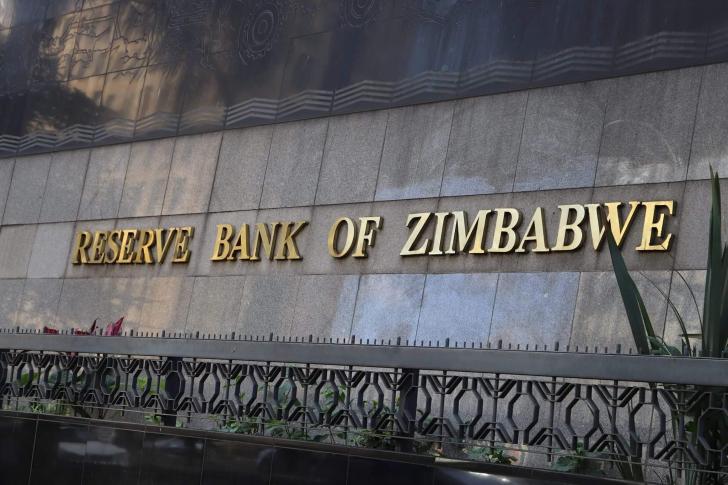News / National
Zimbabwe central bank introduces gold-backed digital currency
23 Apr 2023 at 06:47hrs |
1 Views

THE Reserve Bank of Zimbabwe (RBZ) is set to introduce a gold-backed digital currency to be used as legal tender for transacting in the country as part of interventions to stabilise the local currency.
Introduction of the digital gold tokens, a form of electronic money backed by gold held at the RBZ, will represent the first steps by the central bank towards using the country's gold reserves to anchor the Zimbabwe dollar.
Monetary authorities envisage the digital gold tokens will allow those holding small amounts of Zimbabwe dollars to exchange their money for tokens in order to store value and hedge against exchange rate volatility.
The development comes as the RBZ is also mulling releasing more Mosi-oa-Tunya gold coins onto the market to tame the recent depreciation of the Zimbabwe dollar on the parallel market.
RBZ Governor Dr John Mangudya told The Sunday Mail that the parallel market foreign currency exchange rate is expected to begin stabilising when tobacco farmers start receiving their portion of United States dollar payments this week.
The current exchange rate volatility, he said, was caused by "expectations of increased foreign currency supply" on the market when the tobacco marketing season opened in March.
"The movements in the parallel market rate are mainly because of the expectations of increased foreign currency supply in the market when the tobacco marketing season opened," said Dr Mangudya.
"However, the supply of foreign currency over the past three weeks has been lower than expected. That expectation raised the rates because people thought there will be more money in the market.
"With the start of the tobacco marketing season, most of the funds have been going towards servicing tobacco contractors' obligations. Now, the money will start flowing into accounts of the growers themselves end of this month; that is when most of them will start receiving their US dollar portions."
The digital gold tokens, which are representative of gold held in physical form by the issuing authority, are expected to complement the Mosi-oa-Tunya gold coins by offering an alternative investment avenue to store value and transact.
"What we have noticed is that demand for foreign currency, apart from being driven by the need to import goods and services in Zimbabwe, is also viewed as a store of value," added Dr Mangudya.
"It means anyone with local currency would want to convert it to foreign currency.
"We are addressing this demand for store of value by increasing the number of gold coins in the market so that we manage that demand.
"We shall also soon be introducing digital gold tokens to ensure that those with low amounts of local currency are able to purchase the gold units so that we leave no one and no place behind."
An increasing number of central banks around the world are starting to develop their own digital currencies, in a development meant to boost financial inclusion, slash payment fees and make money smarter.
Russia is presently working with friendly countries, including Iran and China, to create clearing platforms for cross-border settlements in gold-backed digital currencies in an effort to abolish transactions in fiat currencies like the United States dollar and the Euro.
Introduction of the digital gold tokens, a form of electronic money backed by gold held at the RBZ, will represent the first steps by the central bank towards using the country's gold reserves to anchor the Zimbabwe dollar.
Monetary authorities envisage the digital gold tokens will allow those holding small amounts of Zimbabwe dollars to exchange their money for tokens in order to store value and hedge against exchange rate volatility.
The development comes as the RBZ is also mulling releasing more Mosi-oa-Tunya gold coins onto the market to tame the recent depreciation of the Zimbabwe dollar on the parallel market.
RBZ Governor Dr John Mangudya told The Sunday Mail that the parallel market foreign currency exchange rate is expected to begin stabilising when tobacco farmers start receiving their portion of United States dollar payments this week.
The current exchange rate volatility, he said, was caused by "expectations of increased foreign currency supply" on the market when the tobacco marketing season opened in March.
"The movements in the parallel market rate are mainly because of the expectations of increased foreign currency supply in the market when the tobacco marketing season opened," said Dr Mangudya.
"However, the supply of foreign currency over the past three weeks has been lower than expected. That expectation raised the rates because people thought there will be more money in the market.
The digital gold tokens, which are representative of gold held in physical form by the issuing authority, are expected to complement the Mosi-oa-Tunya gold coins by offering an alternative investment avenue to store value and transact.
"What we have noticed is that demand for foreign currency, apart from being driven by the need to import goods and services in Zimbabwe, is also viewed as a store of value," added Dr Mangudya.
"It means anyone with local currency would want to convert it to foreign currency.
"We are addressing this demand for store of value by increasing the number of gold coins in the market so that we manage that demand.
"We shall also soon be introducing digital gold tokens to ensure that those with low amounts of local currency are able to purchase the gold units so that we leave no one and no place behind."
An increasing number of central banks around the world are starting to develop their own digital currencies, in a development meant to boost financial inclusion, slash payment fees and make money smarter.
Russia is presently working with friendly countries, including Iran and China, to create clearing platforms for cross-border settlements in gold-backed digital currencies in an effort to abolish transactions in fiat currencies like the United States dollar and the Euro.
Source - The Sunday Mail
Join the discussion
Loading comments…































